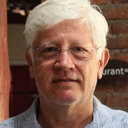Implications of angiotensin II in central nervous system on exercise performance.
Ključne riječi
Sažetak
The renin-angiotensin system (RAS) consists of a complex enzyme-peptide system, which, besides from functioning as a circulating endocrine system, is also intrinsic in many organs and tissues, including the brain. Although the RAS generates a family of biological active peptides, angiotensin II (Ang II) is still considered one of its main mediators and effectors. Ang II produces many well defined and potent effects through AT1 and AT2 receptors and its physiological applications are yet expanding. Recently, it has been proposed that Ang II, acting both centrally and peripherally, interferes on exercise performance due to its influence on multiple functions within the organism. This hypothesis is also supported by evidences reporting an increased frequency of the ACE I allele among elite athletes, suggesting that this is a genetic factor that influences physical performance. The fatigue resulting from physical exercise is a multifactorial phenomenon that comprises the interaction between physiological factors of peripheral and/or central origin. To that extent, the Ang II-mediated events on factors that affect exercise performance such as cardiovascular, metabolic and thermoregulatory adjustments as well as cerebral metabolism and neurohumoral or neurotransmitter turnover, implicate the peptide in the genesis of exercise-induced fatigue. This mini-review focuses on how exercise-induced physiological adjustments are influenced by Ang II within the central nervous system and how these effects may limit athletic performance.


